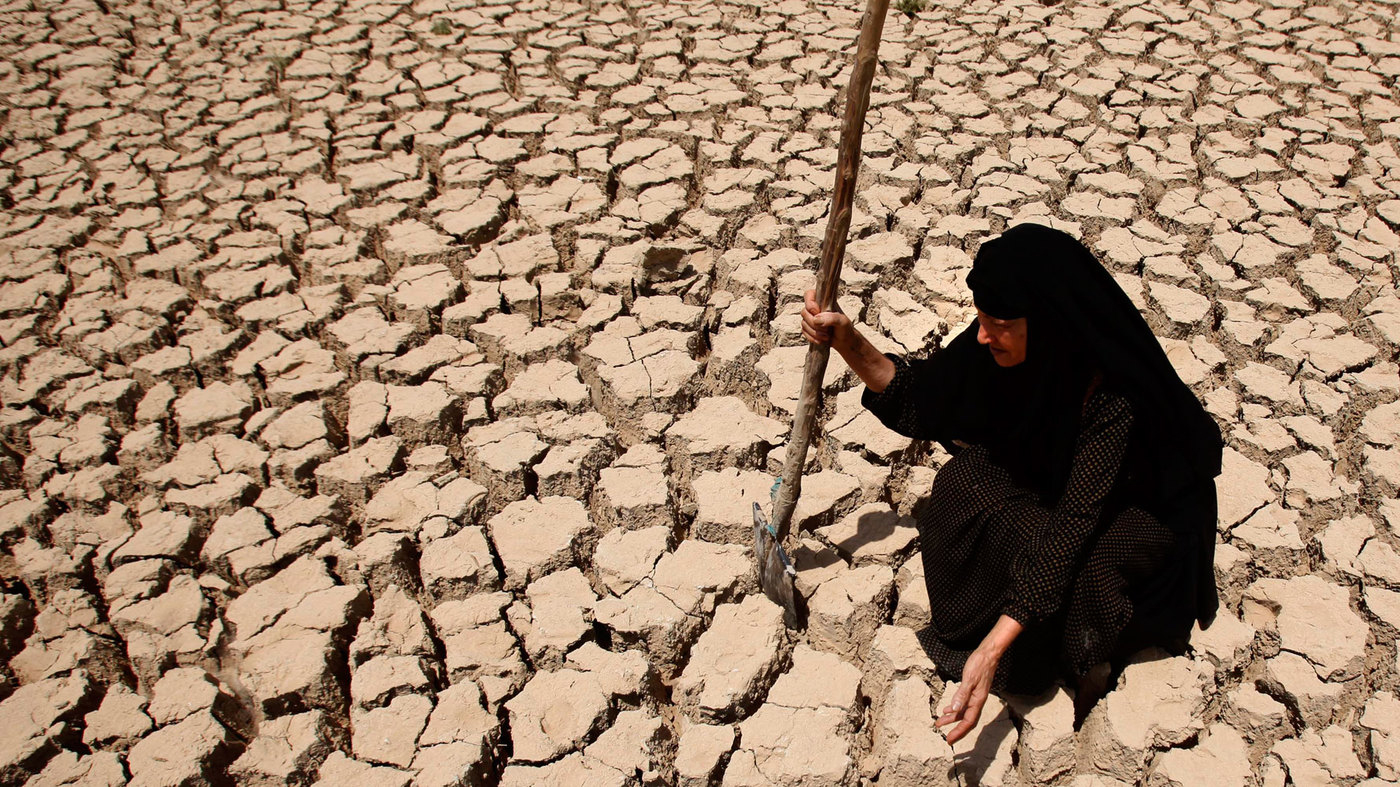At least 3,000 families in eight Iraqi governorates have been forced to leave their homes due to the drought and the low flow of river levels, the High Commission for Human Rights in Iraq announced on Friday.
At least 3,000 families in eight Iraqi governorates have been forced to leave their homes due to the drought and the low flow of river levels, the High Commission for Human Rights in Iraq announced on Friday.
Diyala Governorate, which extends to the northeast of Baghdad as far as the Iranian border, was the most affected by the drought waves due to Iran’s cutting of the tributaries of the Tigris River. This led to a more than 90 per cent decline in the level of the Diyala River.
This led the Iraqi Agriculture Ministry to completely exclude it from its plans resulting in many of its projects being halted and even drinking water plants being stopped from working.
“Iraq is considered the most affected among the five countries which are most harmed by the climate change and 39th among the countries suffering from insufficient water,” Fadel Al-Ghazzawi, member of the High Commission for Human Rights in Iraq, shared in a statement.
He added: “The record decline in rainfall last year contributed to the water crisis and desertification of the agricultural lands, contraction of grass cover, dryness of lakes and ponds, a hike in industrial pollution and soil salinity.”
Al-Ghazzawi noted that all of these factors form “imminent dangers on the environment and life of people,” urging the government to take measures to treat these problems.
Source : Middle East Monitor















